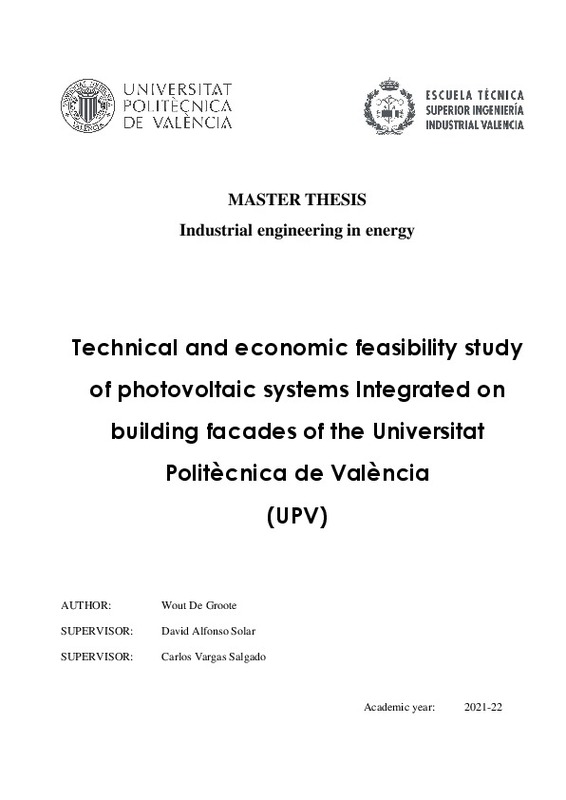JavaScript is disabled for your browser. Some features of this site may not work without it.
Buscar en RiuNet
Listar
Mi cuenta
Estadísticas
Ayuda RiuNet
Admin. UPV
Estudio de viabilidad técnica y económica de sistemas fotovoltaicos integrados en fachadas de edificios de la Universitat Politècnica de València
Mostrar el registro completo del ítem
De Groote, W. (2022). Estudio de viabilidad técnica y económica de sistemas fotovoltaicos integrados en fachadas de edificios de la Universitat Politècnica de València. Universitat Politècnica de València. http://hdl.handle.net/10251/180643
Por favor, use este identificador para citar o enlazar este ítem: http://hdl.handle.net/10251/180643
Ficheros en el ítem
Metadatos del ítem
| Título: | Estudio de viabilidad técnica y económica de sistemas fotovoltaicos integrados en fachadas de edificios de la Universitat Politècnica de València | |||
| Autor: | de Groote, Wout | |||
| Director(es): | ||||
| Entidad UPV: |
|
|||
| Fecha acto/lectura: |
|
|||
| Resumen: |
[ES] Este trabajo considera la viabilidad técnica y económica de un sistema fotovoltaico sobre
fachadas a 90° en cada edificio del campus de vera de la UPV. El cálculo de la producción
de los Edificos se realizó mediante ...[+]
[EN] This paper considers the technical and economic feasibility of a 90° BAPV (building
applied photovoltaic) facade installation placed on all the considered feasible building
walls located on the UPV campus. In order ...[+]
|
|||
| Palabras clave: |
|
|||
| Derechos de uso: | Reserva de todos los derechos | |||
| Editorial: |
|
|||
| Titulación: |
|
|||
| Tipo: |
|
recommendations
Este ítem aparece en la(s) siguiente(s) colección(ones)
-
ETSII - Trabajos académicos [10528]
Escuela Técnica Superior de Ingenieros Industriales







